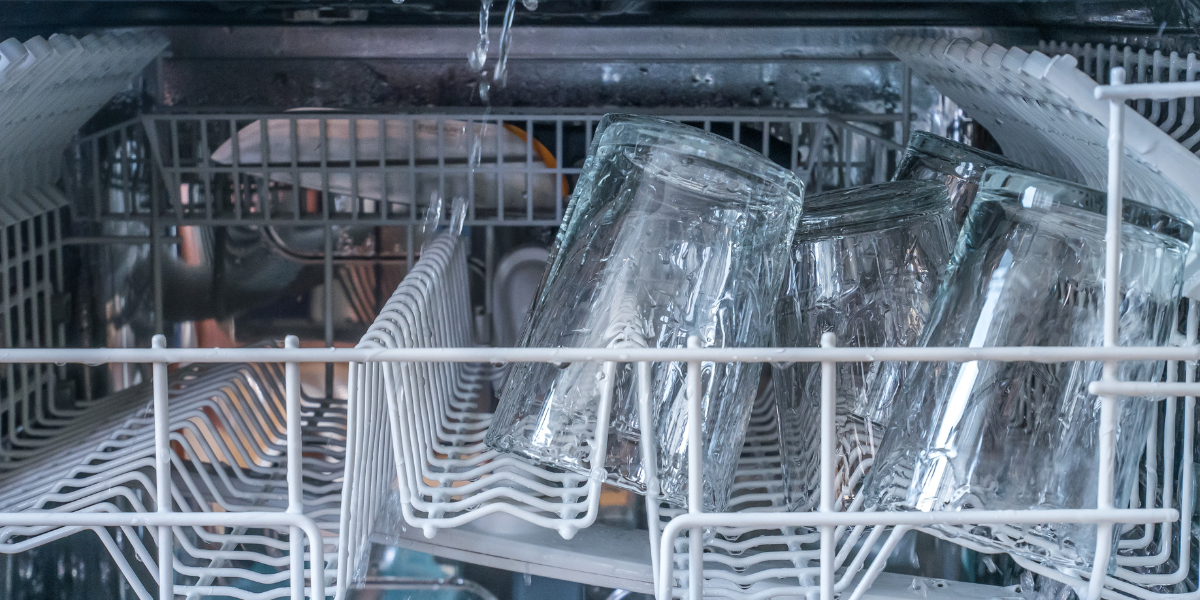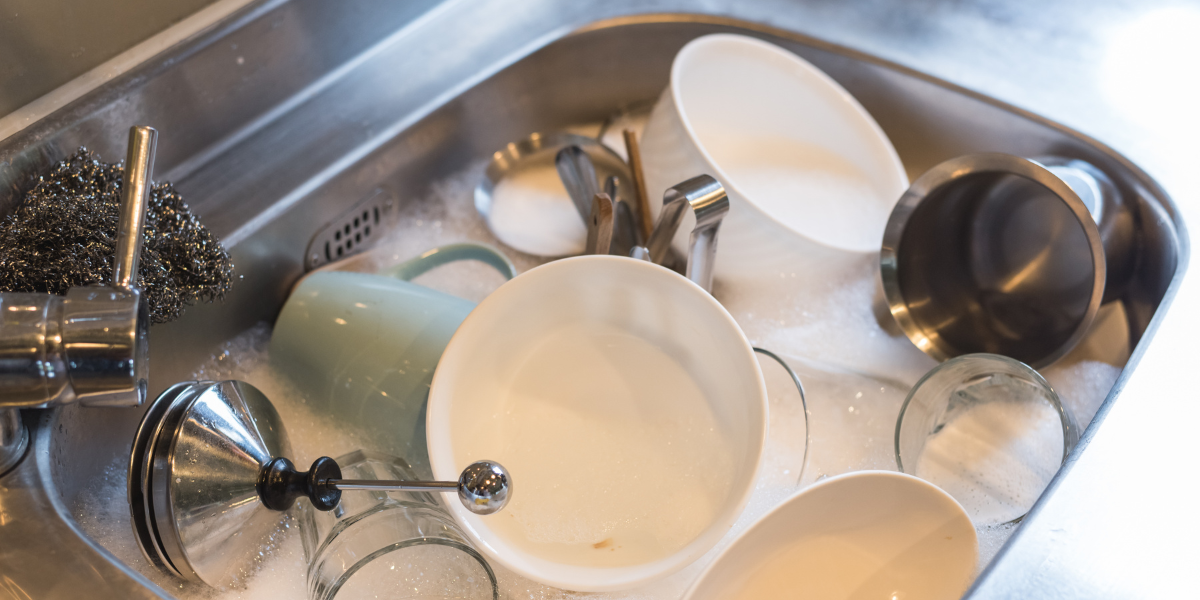Dishwasher vs Sink Washing Water Consumption
Which is more sustainable?
Water conservation is a growing concern today, with many homeowners trying to cut back on their usage. One household chore that raises a question about water efficiency is dishwashing. Do you save more water by washing dishes by hand or by using a dishwasher? Let's dive into the world of water consumption between the two methods to determine which is more sustainable. And you don’t have to take our word for it, we ran our own live experiment!
How much water does a dishwasher use?

- Standard consumption amounts: Most modern dishwashers will use a set amount between 3 to 5 gallons of water per cycle. As you saw in our experiment we used 3.4 gallons. This figure can vary depending on the model and settings used, but it's relatively consistent. Therefore, it is easy to measure how much water is used per week or per month in your home.
- Eco-friendly Settings: Many newer dishwashers come with eco-settings that can further reduce water consumption by optimizing the washing cycle based on the level of dirtiness. They can lengthen or shorten the wash time, water levels, and heat levels.
- Technological Advancements: New advancements, such as the spray feature in dishwashers ensure that dishes get a thorough clean with the least amount of water possible.
How much water is used in sink washing?

- Running water: One of the pitfalls of hand washing is the continuous flow of water, especially if one doesn't turn off the tap while scrubbing. This can lead to much higher water consumption, sometimes as much as 20-25 gallons for a full sink of dishes.
- Rinsing: How one rinses dishes also affects consumption. Using a filled basin for rinsing instead of a continuously flowing tap can drastically reduce water usage.
- Variable Consumption: Hand washing lacks the standardization of a machine, meaning it can be difficult to measure and maintain a consistent level of water consumption, between washing sessions in the same household.
Other factors affecting efficiency
- Energy Use: While dishwashers do use electricity, new technology makes new dishwashers more energy efficient. There is also less need to heat as much water as sink washing.
- Time Factor: Dishwashers, aside from loading and unloading, save considerable time, allowing you to focus on other tasks and use your own energy more efficiently.
- Soap and Detergent: The amount and type of soap or detergent used can also vary. Dishwashers typically use specialized detergents that are formulated for machine cleaning, while hand washing can sometimes lead to the overuse of liquid soap, leading to more waste.
With further advancements in green technology, modern dishwashers seem to have the upper hand in the water conservation debate. They offer a more consistent, efficient method for cleaning dishes, using less water, soap, and time. If you are wondering what dishwasher might be right for your home, check out our dishwasher buying guide to find out! However, if you prefer to stick to the tradition of hand washing, you can save more and waste less by not leaving the water running and using a basin for rinsing, which can help make it more water-efficient.
Ultimately, the decision between using a dishwasher and hand washing will come down to your personal preferences, household size, and the tools at your disposal. But understanding the water usage of each method is crucial for those looking to make more eco-friendly choices in their daily lives.
